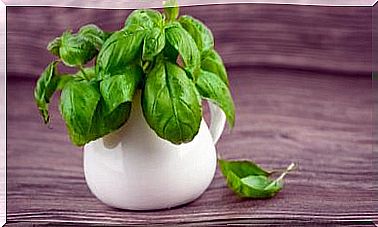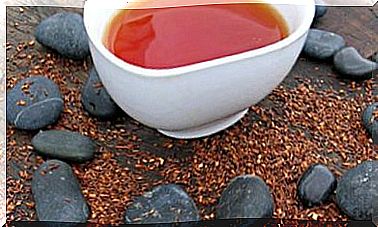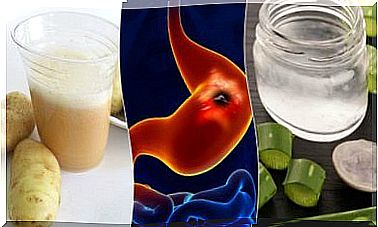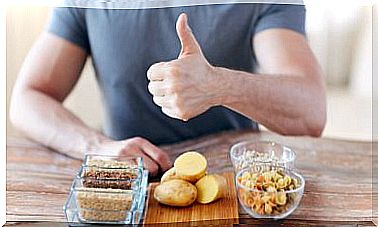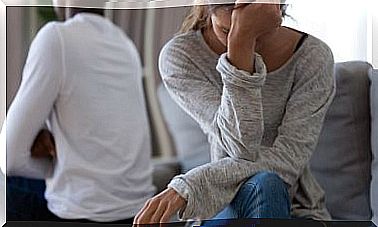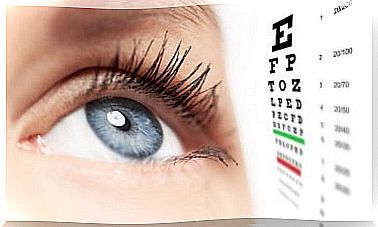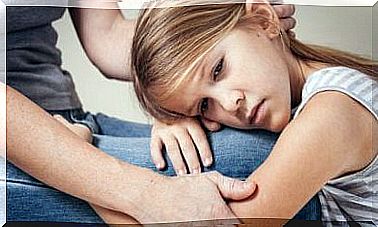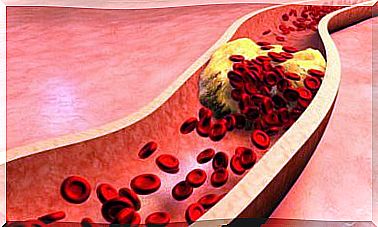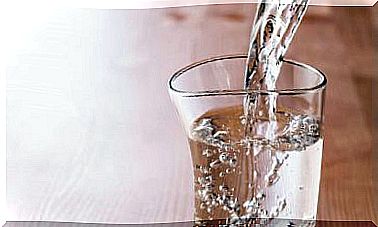What Can I Do To Stop Diarrhea?
The main thing to do with diarrhea is to drink enough fluids to replace what is lost. Thus, during the first 24 hours, hydration is essential
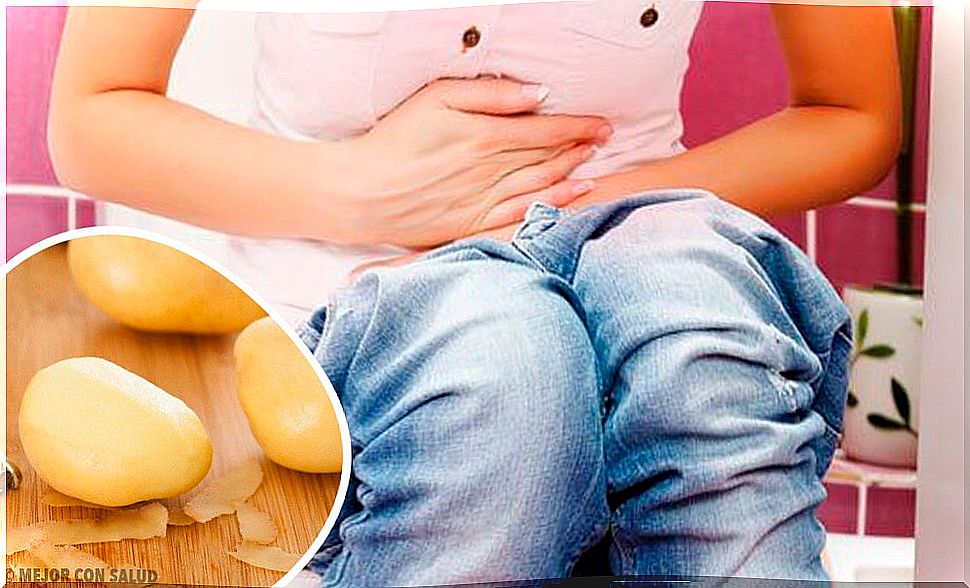
Stopping diarrhea is something that becomes our main concern when we suffer from it. This is one of the most common health problems that affects the digestive system and is also part of the list of the most annoying.
Now, although it is very common for people to present this discomfort (acute diarrhea), we must not ignore it. In addition, if it is prolonged, it is necessary to consult with the doctor as soon as possible so that he can prescribe the pharmacological treatment that can effectively stop the diarrhea and, of course, address the cause of the problem.
Going to the bathroom more than three times a day is physically exhausting, especially due to the loss of fluids. Therefore, it is important to know how to act in case of having diarrhea, as well as to understand the importance of not self-medicating (to stop it soon), and other related aspects. Let’s see more below.
Characteristics of acute diarrhea
As the scientific literature indicates, acute diarrhea is a common complaint that usually originates from an infection.
In view of this, it is clear that maintaining good hygiene and cleaning habits (even when handling food and water) is essential. to avoid contagions, and if these have already occurred, do not neglect it.
Likewise, we cannot forget that, in children under the age of five, diarrhea due to infection can be fatal. For this reason, the World Health Organization (WHO) has shared an action protocol in case of acute diarrhea.
Symptoms of acute diarrhea generally last less than 2 weeks and include bloating, colic, and flatulence, as well as a liquid or pasty consistency of stool. It is necessary for the patient to have an early diagnosis and treatment to prevent the problem from worsening and their life situation from being complicated.
Characteristics of chronic diarrhea
Unlike acute diarrhea, chronic diarrhea can last more than 4 weeks. In addition to causing nausea and vomiting, it causes inflammation of the anus (due to the high number of evacuations), urge to evacuate urgently, exaggerated weight loss and other discomfort.
Alarm symptoms
If, in addition to the symptoms already mentioned above, the patient experiences the following discomfort, it will be extremely important to seek immediate medical help:
- Dry mouth and tongue.
- Dizziness or fainting
- Blood in the stool.
- Difficulty breathing.
- Pain when swallowing or drinking
- Very severe abdominal pain.
What causes it?
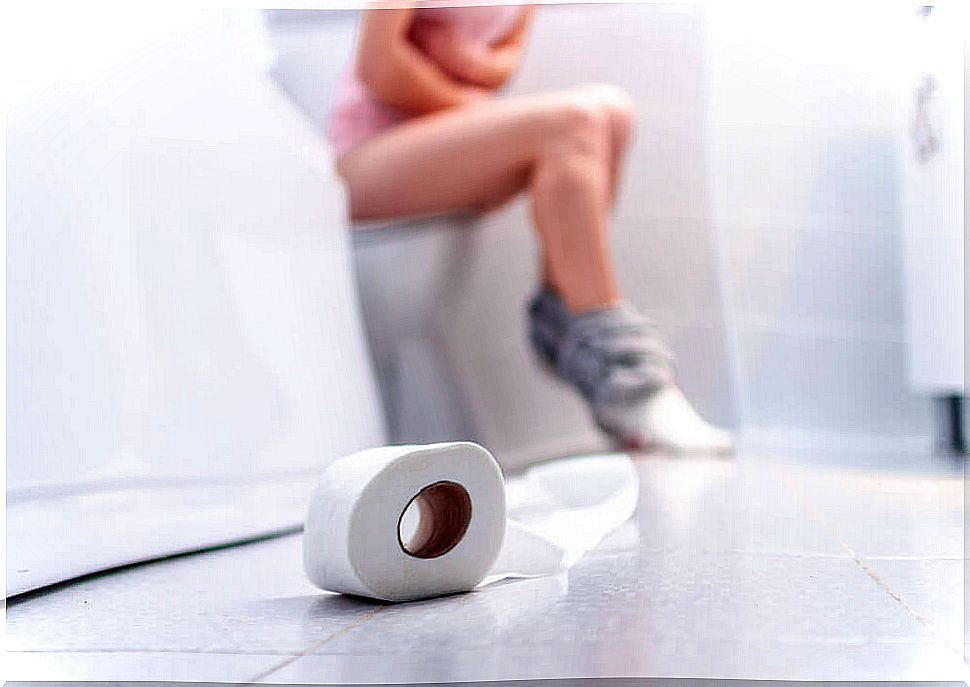
As we mentioned before, there are an infinite number of causes for which diarrhea occurs. From viruses, infections or problems in the gut to accumulated emotional tension and psychological problems.
It is usually due to:
- Hormonal alterations
- Food poisoning.
- Inflammation in the intestine.
- Bacterial or viral infections.
- Gallbladder or pancreas problems.
- Secondary reaction to a drug.
You may have ever noticed that nerves and stress gave you an upset stomach and diarrhea. That is one way the body responds to accumulated tension and for this reason, the problem usually disappears when we calm down.
What should I do to stop the diarrhea?
Regardless of the reason, the main thing is to address the loss of salts and fluids. The diarrheal process is responsible for expelling toxins and pathogens that are attacking the body. However, if the immune system is not prepared, we lose defenses, we will become dehydrated and, therefore, we will notice weakness.
Follow these recommendations
- Stay hydrated and replenish electrolytes with the help of serum.
- Drink at least 3 liters of fluids a day. However, try to make it bottled or previously boiled water.
- Also white meat broths are highly recommended.
- Stay calm and avoid stressful and anxious situations.
- Eat in small portions 5 times a day and chew slowly so your stomach has a chance to digest.
- Do not eat products high in fiber because it speeds up the bowel movement and causes dehydration.
- Stay away from citrus fruits and caffeinated drinks because they increase reflux.
- Moderate the consumption of dairy and those foods that the doctor has indicated as counterproductive in your case.
What foods are beneficial in case of diarrhea?
The recommended diet it is characterized by the suppression of some foods and the gradual introduction of others. In this way, the digestive system recovers little by little.
- In a period of between 6 and 24 hours it is recommended not to eat food, although liquid, in order to detoxify.
- Eat little but frequently, soups and refined cereals.
- Boiled: soft foods should be introduced, such as rice, fruit, chicken and fish.
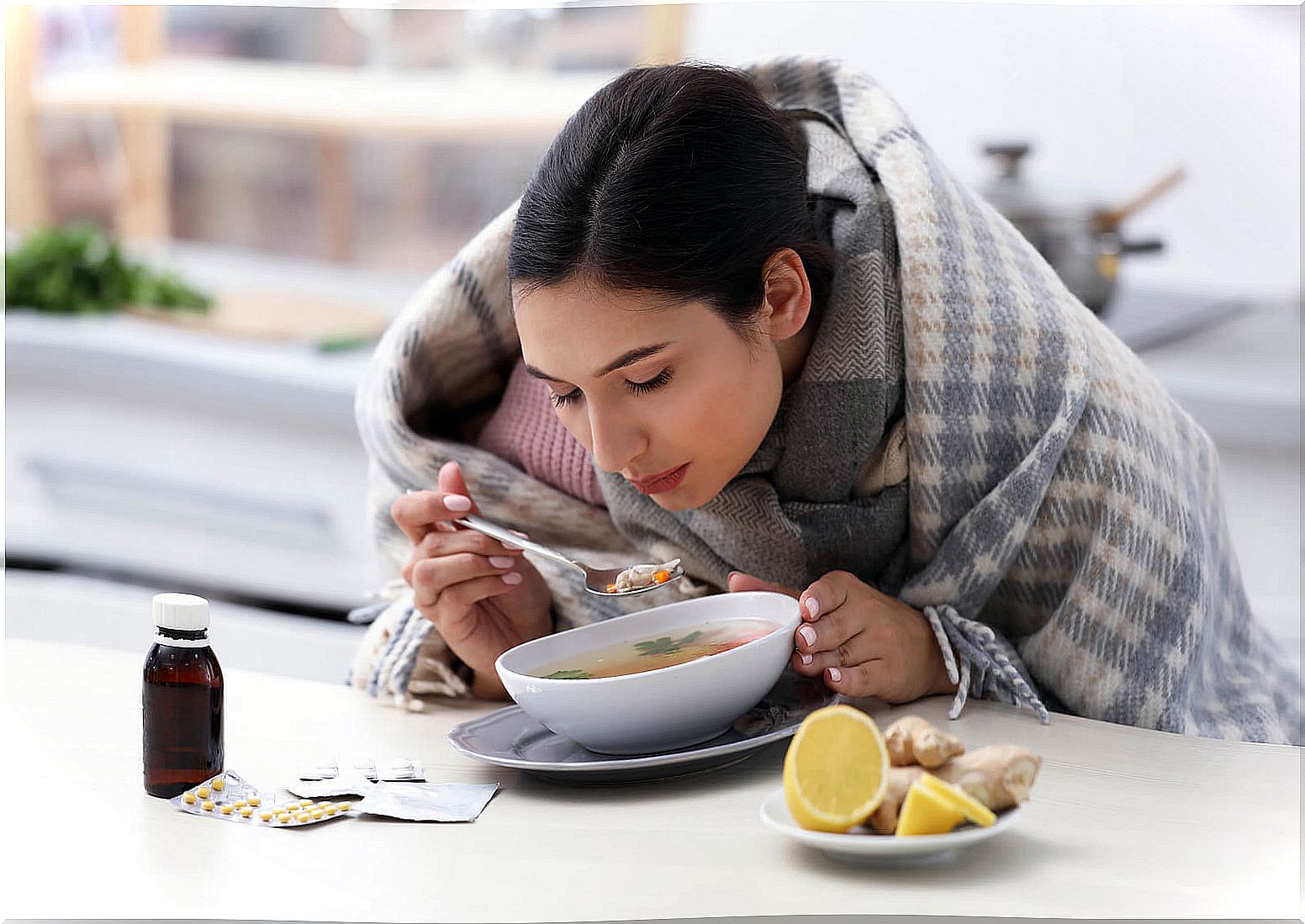
Rich in pectin
Among the functions of pectin is to eliminate bacteria and irritating compounds in the digestive tract. In addition, it protects the gastrointestinal mucosa. Among the recommended foods we find:
- Apple.
- Yoghurt.
- Banana.
- Avocado.
- Carrots
- Bean.
With potassium
One of the minerals most lost with diarrhea is potassium. Therefore, to recover it, include in your diet:
- Chard.
- Potatoes.
- Cabbage.
- Spinach.
With sodium
The loss of salts increases the risk of dehydration so it is necessary to eat foods that contain some sodium. Increase the consumption of:
- Corn.
- Tuna.
- Sardine.
- Chicken soup.
The function of these foods is to help retain water to avoid severe cases of dehydration. However, the ideal is to take them together with foods that provide potassium.
More protein
Proteins are not only responsible for transporting the molecules in the blood from one organ to another. They also help in oxygenation in the lungs and therefore keep the body energized. Once you go to the boiled stage of the recommended diet, you can add:
- Boiled eggs
- Chicken.
- Turkey.

Cooked vegetables and fruits
Because they contain fiber, raw fruits and vegetables are not good for these situations. So, if you are going to eat them they have to be cooked so that their properties do not inflame the digestive system and you can gradually stop diarrhea.
Try with:
- Celery.
- Pear.
- Pumpkin.
- Peach.
- Tomato puree.
- Baked potatoes.
If after 24 hours of following the aforementioned recommendations you cannot stop the diarrhea, it will be necessary to consult a doctor as soon as possible. Remember that diarrhea can be very common, but if you do not address the problem correctly in time, the consequences can be serious.
Also, you should not overlook that many times it is the symptom of a more serious health problem. Therefore, if it persists or is prolonged, you should request the relevant medical tests.

